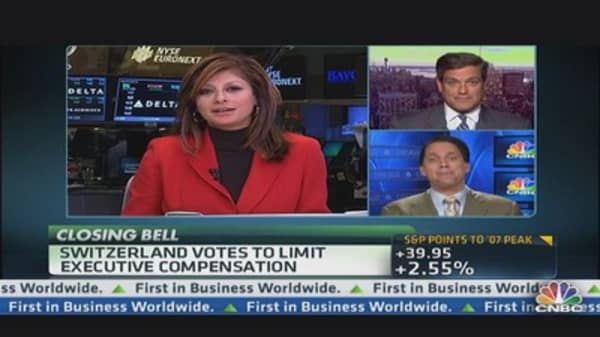Switzerland and the world's super-rich have long been an item. The country's banking sector, famous for its centuries-old private banks such as Pictet, Mirabaud, and Lombard Odier, manages SFr5.3 trillion of wealth, SFr2.7 trillion of which is drawn in from abroad.
Meanwhile, many of the Alpine state's cantons, such as Zug and Bern, have become home to scores of the world's wealthiest people thanks to special tax regimes for rich foreigners who live but do not work in Switzerland.
Over the years, these special deals – which tax wealthy immigrants according to the value of their properties in Switzerland rather than their global assets or income – have lured in luminaries ranging from the racing driver Michael Schumacher to the singer Tina Turner and the Russian tycoon Viktor Vekselberg.
However, the zeal with which Swiss citizens on Sunday backed the curbs on executive pay is just the latest sign that Switzerland's relationship with the ultra-wealthy is beginning to change.
Not only was the referendum – which among other things bans golden hellos and goodbyes and gives shareholders a binding vote on executive pay – approved by each of Switzerland's 26 cantons, but the 68 percent approval rate was also one of the country's highest Yes votes ever.
The signs of unease go far beyond the referendum, the initiative of entrepreneur-turned politician Thomas Minder. In recent years, several cantons have got rid of their special tax regimes for wealthy foreigners: Zurich took the lead in 2009, and has since been followed by Schaffhausen, Appenzell-Ausserrhoden and Basel. Other cantons have tightened up their special regimes, even if they have not done away with them altogether.
Meanwhile, a recent debate about imposing immigration quotas on the EU was at least partly influenced by the steady influx of rich foreigners who have driven up house prices in places like Zurich and Geneva to a point where some Swiss can no longer afford to live there.
At the same time, increasingly forceful international efforts to crack down on tax evasion have made some of Switzerland's banks think twice before welcoming foreign wealth.




